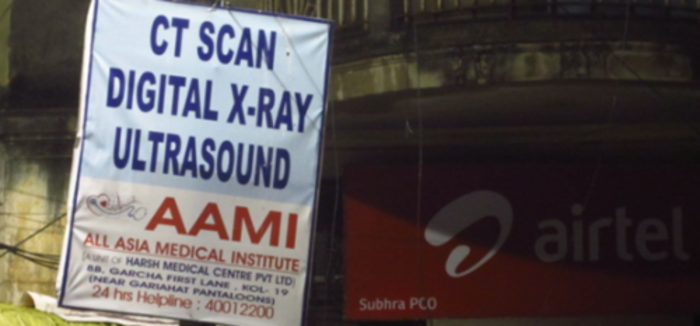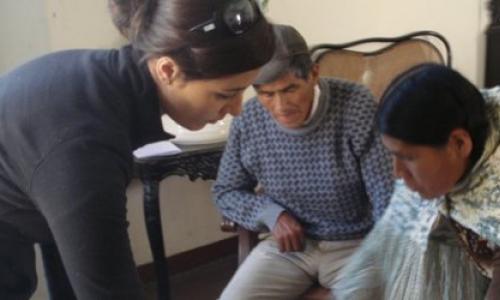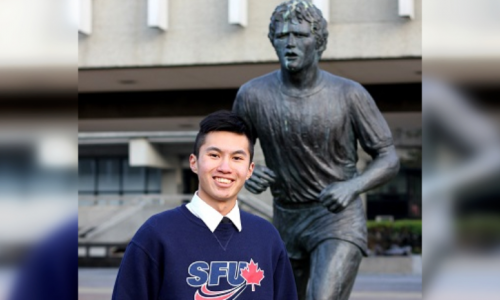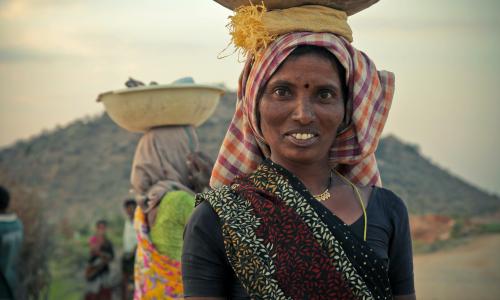
In the summer of 2011, four SFU Health Sciences Co-op students, Martyna, Silvia, Lindsay and Christine went on an INCREDIBLE 4-month work term to India. Working with Destiny Reflection, an organization whose goal is to empower female victims of human trafficking to become self-sufficient through dignified employment. Their blog series, SFU Health Sciences Takes India!, captures some of the experiences on their life changing journey.
Today marks 5 weeks since we have been in Kolkata – although to me it feels like it has been much longer. Already we have seen many new places and learned so much through experience that I am constantly processing new thoughts, opinions and ideas in my mind. I am having difficulty recording all of them in my journal. I really appreciate living, working, studying, and traveling with 3 other friends/students in Kolkata. Our learning experiences are often brought up in our conversations, which help me to process them better.
Before we left for India, Faye – our co-op coordinator – called all of us to her office for a last minute check-in to make sure we were ready to embark on our international internship. She asked each of us to voice any concerns or feelings we were experiencing before our departure for India. This was fantastic because Faye created an opportunity for clear communication. Since then, we often have “Faye Feeling Circles” over breakfast, lunch, dinner, or anytime in between. The four of us reflect upon the experiences and feelings we have had throughout our day. Open communication constructs a healthy, co-operative, and supportive living, working, and learning environment. THANK YOU FAYE!
I love Silvia, Lindsay and Martyna very much! The four of us are like a special family that does everything together. Imagine a nuclear family -- the kids go to school, the parents go to work -- everyone has their own busy schedule. But, the four of us are a special family because we do everything together.
We live, cook, eat, clean, shop, commute, work, study, attend class, exercise, dance, travel, go out, and watch “ER” together. We are together ALL the time. We have got so used to it that it is weird when one of us is not around.
I value the fact that at least one of us often has an opposing opinion because we question each other and talk about topics further. For example, when we first came to Kolkata, Martyna noticed advertisements for health clinics that did CT scans and ultrasounds. She said that these clinics must be for sex determination of unborn children so that girls could be aborted. I have learned about fetal sex selection, but I did not want to believe it. I responded to Martyna’s observation by explaining that ultrasounds are also used for reasons other than fetal sex determination.
It is a huge advantage that Dr. Rochelle Tucker (aka Dr. Ro) has offered to teach us a “Directed Readings: Gender and Health” seminar while we are in Kolkata. I look forward to her seminar every week. She has selected readings that focus on gender and health both in Canada as well as India. We are learning about how social and cultural norms construct gender roles which influence policy, social systems, and behaviour that result in individual health outcomes. Experiences from our new environment are often brought up in class discussions which helps us better understand Indian culture. THANK YOU DR. RO!
During one of our first “Gender and Health” seminars, Martyna brought up the topic of fetal sex selection in India. Dr. Ro confirmed that Martyna was correct about the advertisements created by the “All Asia Medial Institute” that advertise ultrasounds. I admire Martyna for being informed, but it is unfortunate that she was right because it means that the abortion of females is actively advertised in the community in which we currently live.
These pictures are taken about 100 m away from our flat on Dover Lane.
Lindsay, Martyna, Sivia and I thank both Dr. Ro and Faye for your caring and support. Thanks to your passion and commitment to student’s learning, you have created this incredible opportunity for us to live, volunteer, study and travel in India. All four of us appreciate it so much and agree that SFU is AWESOME!
Beyond the Blog
-
Learn more about Destiny Reflections
-
Follow Silvia, Christine, Martyna and Lindsay's Co-op journey in India through their blog series: SFU Health Sciences Takes India!
-
Find out more about the opportunities available through International Co-op
















